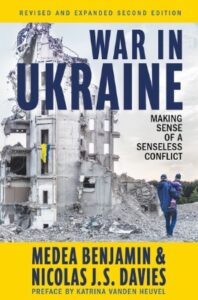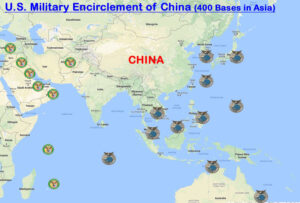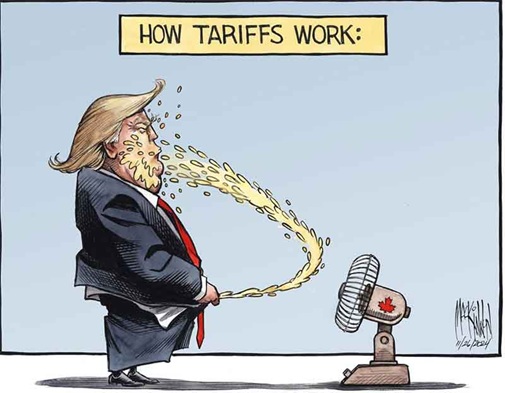 Illustration by Fourate Chahal El Rekaby, tni
Illustration by Fourate Chahal El Rekaby, tni
[A] lot of people across the global majority are asking the extremely serious question: why the BRICS, and especially why Russia and China, are not doing more than what they’re doing on behalf of Palestine and to defend Palestine. This is an extremely serious question and it’s not being addressed by Russia and China. We have to be straightforward about that, right? The only ones who are actually doing something, once again, are the Houthis in Yemen. Heroes of the whole planet.
— Journalist and geopolitical analyst Pepe Escobar in a Youtube interview with Danny Haiphong, streamed live on 17 July 2024 (approximately 18:16 to 18:54)
The sentiments expressed by Escobar were expressed to me at an earlier date by author Randy Shields:
… if all Russia and China are going to do is talk they could start talking about a one state solution. They could put some urgency into the situation. They could let Abbas and the Gulf family dictatorships know that the status quo is unacceptable. They could start telling the truth to the world that the “two state solution” is impossible and was only ever a delaying tactic by Israel. They could even announce that Palestine is under consideration for BRICS membership…. They could cut off whatever trade they have and cut off diplomatic relations with Israel, recall ambassadors, etc…
Godfree Roberts, author of Why China Leads the World gave his take on China and Palestine in his 1 May 2025, “Xi the Merciful?: The fate of China’s worst enemy lies in Xi Jinping’s hands”:
Beijing is hunting much bigger game than tariffs: the liberation of Palestine. China, Palestine’s oldest and most loyal friend, has endured America’s genocidal mania for generations and now has the tools to end their shared misery….
This year, we will witness the most momentous events since WWII. Global leadership will return to Asia, America will enters [sic] its post-imperial twilight, and Palestine will become free and independent, and the Zionists return to Ukraine whence they came.
Shields is skeptical:
There’s no evidence to back up what [Roberts] says. Russia and China continue to maintain trade and diplomatic ties with a genocidal apartheid state committing 24/7 live-streamed genocide.
China plays a long game. There is plenty of evidence of Chinese advancements in science, technology, supply chains, manufacturing, arts, etc. The question is whether China (and Russia) will come through with morally based support befitting a leading world economy?
The Communist Party of China (CPC) has made great strides for its people, having achieved a xiaokang (moderately prosperous) society in 2021. Moving forward, China aims for gongtong fuyu (common prosperity) — a society based on social equality and economic equity.
On the road to gongtong fuyu, the CPC’s next five-year plan targets “the goal of basically realizing socialist modernization, with a view to building a great country and advancing national rejuvenation” in the period 2026 to 2030. China’s rise is also meant to benefit the world as it seeks peaceful win-win relationships. Chairman Xi Jinping said, “Long ago China made a solemn declaration to the world that it is committed to pursuing peaceful development.”
This commitment to pursuing peaceful development has recently been thrown into question by China’s business arrangements connected to the Israeli occupation of Palestine, which can hardly be construed as peaceful development from the Palestinian side (or any morally based side).
China’s Support for Palestine
China’s support for the human and territorial rights of Palestinians dates back to the time of chairman Mao Zedong. Mao’s China supported anti-imperialist and national liberation movements worldwide; this included support for the Palestinian cause. In May 1965, the Palestine Liberation Organization (PLO) was ensconced in a Beijing office and accorded diplomatic privileges and immunity. During a meeting with a visiting PLO delegation in 1965, Mao said: “Imperialism is afraid of China and of the Arabs. Israel and Formosa are bases of imperialism in Asia. You are the front gate of the great continent, and we are the rear.”
Post-Mao, on 20 November 1988, China officially recognized the State of Palestine and established official diplomatic relations between the two countries. On 31 December of the same year, the PLO’s office in Beijing was upgraded to the Embassy of the State of Palestine in China, and its head was appointed as the ambassador of the State of Palestine to China.
However, China has a uneven history of supporting the Palestinian cause and opposing Zionism.
More recently, at the International Court of Justice (ICJ) on 22 February 2024, Ma Xinmin, director-general of the Department of Treaty and Law of the Chinese Foreign Ministry “unequivocally stated”:
“The Palestinian-Israeli conflict stems from Israel’s prolonged occupation of Palestinian territory and Israel’s longstanding oppression of the Palestinian people. The Palestinian people fight against Israeli oppression and their struggle for completing the establishment of an independent state on the occupied territory are essentially just actions for restoring their legitimate rights.”
Moreover,
Citing numerous articles of international laws, Ma claims that “the struggle waged by peoples for their liberation, right to self-determination, including armed struggle against colonialism, occupation, aggression, domination against foreign forces should not be considered terror acts” and that “armed struggle in this context is distinguished from acts of terrorism. It is grounded in international law. This distinction is acknowledged by several international conventions.” He further declares, “in pursuit of the right to self-determination, Palestinian people’s use of force to resist foreign oppression and complete the establishment of an independent state is an inalienable right, well-founded in international law.”
Regarding the deliberations by the ICJ on the charge of genocide being carried out by the state of Israel, China supports the ICJ’s role in upholding justice and international law, and calls for an immediate ceasefire in Palestine, humanitarian assistance, and a two-state solution to achieve lasting peace in the region.
On 14 April 2025, Times of India reported that Russia and China criticized Israel for turning humanitarian assistance to Gaza into “a tool of war.” Russia’s UN envoy Vasily Nebenzya alleged that Israel was attempting to make the UN an accomplice to its warring in Gaza. This sentiment was echoed by China’s envoy Fu Cong.
As Shields, and many others, would point out this is just more words.
What is China doing in Israeli Occupied Palestine?
But the situation vis-à-vis Palestine appears decidedly more sinister.
Razan Shawamreh is a Palestinian researcher interested in Chinese foreign policy in the Middle East. She has thrown a wrench into Chinese good intentions supporting Palestinian resistance and self-determination in its territories. Shawamreh wrote an article, “How China is quietly aiding Israel’s settlement enterprise,” for the Middle East Eye in which she charges, “Away from Beijing’s lofty rhetoric about defending Palestinians, Chinese firms are helping to sustain illegal settlements.” Despite China having supported the UN General Assembly resolution 3379 that defined Zionism as a “form of racism and racial discrimination” in 1975, Shawamreh provides numerous examples of Chinese support for Zionism.
- Adama Agricultural Solutions, a former Israeli company now fully owned by the Chinese state-run firm China National Chemical Corporation (ChemChina) is directly “linked to the militarised destruction of Palestinian livelihoods.”
- This is not an exception. Shawamreh writes, “In recent years, several state-owned Chinese companies, along with other private Chinese firms, have invested directly or indirectly in Israeli settlements or companies operating within them. Take the case of Tnuva, a major Israeli food producer that operates in illegal settlements. Despite international calls to boycott the company, China’s state-owned conglomerate Bright Food acquired a 56 percent stake in Tnuva in 2014. In 2021, Tnuva won a tender to operate 22 public transportation lines that serve 16 settlements in Mateh Yehuda – all built on occupied land in East Jerusalem and the West Bank. These aren’t just buses; they’re infrastructure supporting colonial entrenchment, making settler life easier and more permanent.”
An earlier article by Shawamreh concluded, “China’s alleged impartiality serves to undermine Palestinian rights.”
I have seen no official Chinese response to the reports of abetting the Israeli Jews’ dispossession of Palestinians. What did appear on 17 May 2025 was a Youtube video by global impulse, titled “The SHOCKING Truth Behind China’s Gaza Aid | 60,000 Families Saved,” which claimed, “But one thing is clear, China is no longer content to be a passive observer in Middle Eastern Affairs.” Two months earlier, The Indian Express showed a video that China had sent its first batch of 60,000 packages of humanitarian aid to Palestinians in Gaza via Jordan.
Can the guilt of colluding in the genocide and dispossession of indigenous Palestinians bring comfort to the Chinese soul through providing aid parcels?
Xi Jinping on Israel and Palestine
In a speech on 5 June 2014 chairman Xi Jinping spoke of “hundreds of years [of] peace and cooperation, openness and inclusiveness, mutual learning, and mutual benefit” between the Chinese and Arab peoples. “We will not forget the promise to support the cause of the Palestinian people that China made to the Arab states … at the Bandung Conference 60 years ago.” [Emphasis added]
Mao laid the foundation for the PRC in dealing with Palestinians. As part of a symposium to commemorate the 120th anniversary of Mao’s birth, Xi channelled Mao in a speech titled “Carry on the Enduring Spirit of Mao Zedong Thought”:
We stand for peaceful resolutions to international disputes, oppose all forms of hegemony and power politics, and never seek hegemonism nor engage in expansion.
The Conscience of China
China is important. Its dedication to peaceful development and diplomacy is laudatory and in stark contrast to the bombastic hectoring and warring of the US-NATO block. China cares for the well-being of all its citizens; it seeks win-win relationships with other countries — not the win-lose entanglements of the capitalist West. As such China gives substance and believability to reifying that elusive, illusory, transient, teasing, wishful abstraction called hope — hope that all too often leads to bitter disappointment.
I have been disappointed before upon hearing of Chinese involvement in an unsavoury circumstance. A few years back, I came across an article that was scathing of a big Chinese tuna-fishing company, Dalian Ocean Fishing, for alleged maltreatment of foreign workers, workers who fell sick, died, suffered abuses, substandard food, excessive working hours, and withholding of pay.
I inquired about the situation and discovered it was a rogue private company that was selling its catch to a Japanese company, Mitsubishi. Nonetheless, that does not let China off the hook. Perfection is not expected, but how Chinese-licensed private companies do business at home and abroad does reflect back on the home country.
While beyond the scope of the present article, deeper consideration of the role of the Chinese State vs. Private Capital in China’s external relationships demands elucidation. What exactly does win-win mean?
While state-owned firms are clearly extensions of Chinese policy, how China manages — or fails to manage — the conduct of private or semi-state firms abroad, especially in contested or ethically sensitive zones speaks to the conscience of a nation.
Especially concerning, is the case of Chinese state-owned companies doing business for an occupier in occupied territory. This is morally magnified when the occupier, Israel, is under scrutiny by the World Court for committing genocide. Genocide is an act that morally upstanding countries will emphatically denounce as reprehensible; in addition, morally upstanding countries will take measures to publicly distance their state from such an evil-doer until such time as it sincerely atones for its crime against humanity. Highly moral countries — for example, Yemen — will make sacrifices to bring an end to such horrific crimes.
Professor and author T.P. Wilkinson, a keen China observer, remarked, “Non-interference is China’s top principle — business comes first. If there is any morality it only applies in China.”
China does not interfere in the culture and politics of other nations. That is understood. Nonetheless, morally centered people do not wish to see their country or any other country engage in violence against other nations in the world. And morally centered people do not wish to see their country abetting violence, not borne of self-defense, by another country. For allying with unrepentant rogue actors such as the United States and Israel, vassal states in Canada, Oceania, and Europe deserve to be regarded scornfully.
As an emerging superpower, China has increasingly garnered respect for pledging and delivering peaceful, win-win relations with other countries. That needs to be across the board. China is now faced with serious allegations, and it needs to come clean on what its companies are doing in occupied Palestine. One cannot expect that a country’s political leader is up-to-date and aware of all the ongoing functions of a country, domestically and externally, especially in a rapidly rising colossus of 1.4 billion people. However, when sordid facts come to the fore, a leader must lead. It is morally incumbent that chairman Xi deal forthrightly and promptly with any Chinese involvement in ignoble business affairs or crimes against humanity.
What Would Meaningful Action Look Like?
If Chinese firms are confirmed to be operating illegally in the occupied territories of Palestine, then I submit that an official Chinese public apology is demanded, also an immediate cessation of Chinese operations in what was once known as Mandate Palestine, and a turning over of Chinese assets in Mandate Palestine to Palestinian authorities. But it is for the Palestinians to determine what would be the proper rectification by China.
Why, one may ask, is such atonement not demanded of Canadians, American, and European interests in Mandate Palestine? It is and should be, but western governments have been unabashed in supporting colonialism, imperialism, and racism abroad. This speaks to the nature and conscience of Western governments that were so quick to fallaciously accuse China of genocide in Xinjiang, and yet they are loathe to acknowledge the factually undeniable genocide in Palestine. China, on the other hand, is viewed by much of the world’s people as a cut above the western governments.
Geopolitical Realism vs. Moral Idealism
While the present article acknowledges the current realpolitik constraints that China faces in balancing ties with Israel, the US, Arab countries, and the rest of the world, it posits the primacy of moral responsibility. Morality is what separates capitalism’s dog-eat-dog law-of-the-jungle from socialism, and Socialism with Chinese Characteristics is what is practiced by China.
As such an unflinching moral audit of China’s actions in occupied Palestine is called for. Therefore, to maintain its high regard, China must earn and hold onto the people’s trust through morally centered economic activities at home and abroad, as is implied by win-win relationships. In a truly multipolar world not only must power be redistributed more equitably but shared moral standards must also be elevated.
It is decidedly not a win-win relationship when Palestinians are subjected to starvation, humiliation, murder, bombardment, theft of territory, and the indignity of the World Court taking what must seem like an eternity to put a halt to a crime that demands immediate action: genocide. That China companies would profit from a genocide would cast a pall over China that would be hard to shake.
If China aspires to genuine global leadership, then it must lead not just in development and diplomacy — but in conscience.
ENDNOTES:
The post
Palestine and the Conscience of China first appeared on
Dissident Voice.
1 Xi Jinping, “China’s Commitment to Peaceful Development” in The Governance of China, (Beijing: Foreign Languages Press, 2014): location 3914.
2 In al-Anwar (Beirut), April 6, 1965, as received from New China News Agency (NCNA). Cited in John K Cooley, “
China and the Palestinians,”
Journal of Palestine Studies 1:2 (1972): 21.
5 Quoted by Zhang Sheng, tni, 12 March 2025.
7 Xi Jinping, “Promote the Silk Road Spirit, Strengthen China-Arab Cooperation” in The Governance of China: location 4552.
8 Xi Jinping, “Carry on the Enduring Spirit of Mao Zedong Thought” in The Governance of China: location 602.
This post was originally published on Dissident Voice.
 Most western mass media has been referring to China as imposing sanctions rather than countermeasures, but the distinction is important.
Most western mass media has been referring to China as imposing sanctions rather than countermeasures, but the distinction is important.






















